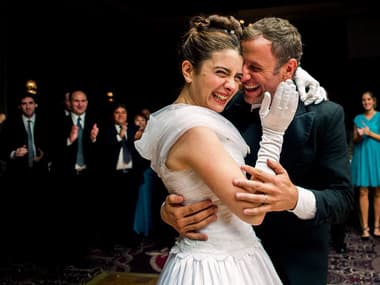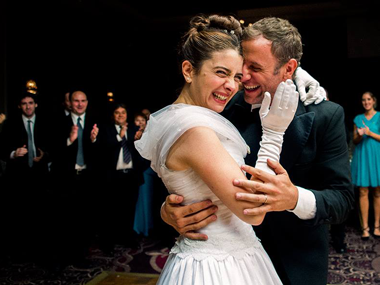Have you ever thought you could kill someone because of their miserable driving? While listening to Beyonce, have you wished you too felt like you were crazy in love? Did you ever look at the guy taking a bribe from you and wish you could blow him up? In Argentinian director Damian Szifron’s Wild Tales, all this happens. Literally. A plane full of people, all of whom share a “cosmic connection” with one Gabriel Pasternak, a man whose life is turned upside down because of a chain of events kickstarted by his car being towed away, two men fighting for no reason, a wedding reception that goes violently off track when the bride realises the groom has been cheating on her – Szifron wasn’t kidding when he titled his series of six, unrelated short films, Wild Tales. Nominated for the Best Foreign Film at this year’s Oscars, Wild Tales is wicked, funny, drenched in violence and utterly delicious. The film’s credits roll against a backdrop of wild animals as photographed in the pages of a magazine. They’re fierce, magnificent and captured in their natural state, which is what Szifron attempts to do with Wild Tales. These six stories don’t show the animal side of a human but rather, the plotting, ego and violence that characterises the human species. [caption id=“attachment_2105697” align=“alignleft” width=“380”]  Courtesy: Facebook[/caption] The mood is set with the prologue, “Pasternak”, in which a plane full of people realise all of them have at some point in their lives come across a man named Gabriel Pasternak. And all of them did something mean to him. A music critic savaged Pasternak’s composition; a shrink raised the fees that Pasternak had to pay him; a school mate bullied him - every single person, right down to the air hostess, has had an episode with Pasternak. The way he gets his revenge on all of these people is both horrifying and hilarious. With the spectre of 9/11 continuing to haunt so many of us, most would steer far away from showing a plane being hijacked and forced to crash, but Szifron is both bold and brilliant. In “Pasternak”, Szifron maintains a tantalising balance between shock, dismay and flat out hilarity. The short film ends just before a tremendous tragedy is about to occur, but chances are that as the last frame “Pasternak” plays out, you will be giggling. This happens repeatedly in Wild Tales. For instance, at the end of the third short film, “El Mas Fuertes” (“The Strongest”), the police look at the scene before them and wonder whether this is a crime of passion. They have no idea that before them are the remains of an idiotic fight between two bone-headed strangers, which began with one not letting the other overtake them on the highway. That the police are so wildly off the mark is bound to make you laugh. Thematically, Wild Tales is reminiscent of Jia Zhangke’s A Touch of Sin, which was also a cluster of stories connected by the theme of an almost absurd violence. Within the first 30 minutes of A Touch of Sin, there were five murders, one beating and blood spatter was everywhere. In the China of A Touch of Sin, being unhinged is almost normal and that made the film a most scathing criticism of the silences imposed upon China by its political establishment. Wild Tales is more subtle and infinitely funnier. Although the violence here is mindless, it doesn’t erupt without cause. The cause may seem petty, but it exists and the fact that something so insignificant can lead to such mayhem makes for powerful social commentary without ever becoming preachy. The point that Szifron makes repeatedly in Wild Tales is that we’re all at such a volatile point that the smallest, silliest little thing can set off a dangerous set of events. The system - social, political, legal - is critically flawed and surviving because of complacency and corruption. And because people are too busy literally trying to kill each other in Wild Tales. It is perhaps not surprising that the happiest man, with the most freedom, is the one in jail for committing a random act of violence. Despite all the blood, cruelty and vengeance on screen, Wild Tales doesn’t leave you despondent. The six stories aren’t all equally strong, but Szifron expertly conducting this lunatic, violent opera in a way that the weaker stories (like the second) don’t stand out. By the end of almost every story, you’re left smiling. In all the madness, there is still hope - because we’re still able to spot the absurdity of human wildlife and we’re still laughing. Don’t miss Wild Tales. It will make you see the world around you differently. Wild Tales is showing at PVR cinemas across the country. Please check your local listings for timings.
The point that Szifron makes repeatedly in Wild Tales is that we’re all at such a volatile point that the smallest, silliest little thing can set off a dangerous set of events.
Advertisement
End of Article


)
)
)
)
)
)
)
)
)



